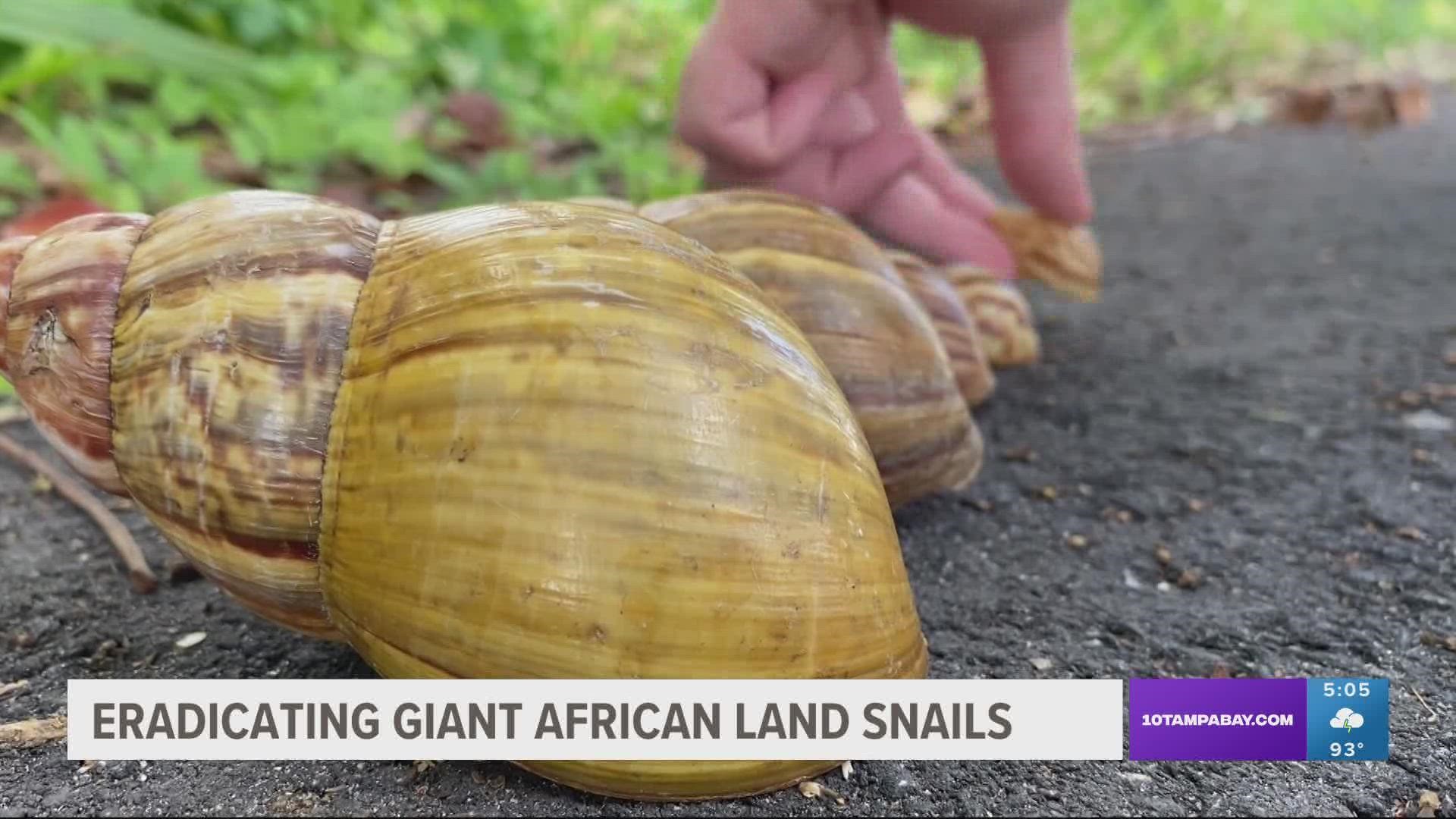PASCO COUNTY, Fla. — It'll take the Florida Department of Agriculture and Consumer Services 17 months to survey and treat a quarantined portion of Pasco County for giant African land snails.
The snails, known to be the most damaging in the world, can lay up to 2,000 eggs a year. And now, it's confirmed some of the snails collected have tested positive for rat lungworm disease. The disease can be passed to humans and cause meningitis.
Jason Stanley, a nematologist with FDAC, said rat lungworm was detected in the snails last week.
"The snails feed on rat feces," Stanley said. The snails get lungworm from the rats, then, if humans eat the snails, the parasite can be passed on, causing meningitis.
"We've found close to 2,000 snails in the quarantine area," he said. "We continue to find some, but they're on the previously positive property. The treatment is working really well so we're finding a lot of dead snails now, which is what we want to do."
The snail investigation involves a survey and treatment cycle, Stanley explained. Survey teams consist of professionals as well as two dogs who are able to find the snails using scent.
Community outreach is happening as well, with FDAC officials communicating with homeowners and businesses within the quarantined zones.
The USDA's Smuggling Interdiction and Trade Compliance program is tasked with trying to figure out how the snails made it to Pasco.
While they haven't yet determined the origin, Stanley said they believe the snails came through the pet trade. Every snail they've found in the area has a white flesh that is popular in this trade, he said.
"Someone probably bought some snails online, got tired of them laying so many eggs, dumped them in the yard and here they are," he said.
So, what impact have these invasive snails had on the area under investigation?
Some local businesses have had to make small changes in order to operate in the quarantined zones.
Landscapers, nurseries, stock dealers and solid waste facilities within the quarantined area are required to have a compliance agreement with the department, Christina Chitty, FDAC Public Information Director for the FDAC's Division of Plant Industry said.
They also have to complete a visual survey to ensure there are no snails on their plants. There have been no products so far prohibited for sale.
If the snail population hadn't been controlled in as timely of a manner, the consequences could have been much greater.
Major export issues, crop loss — a huge impact on Florida agriculture would have been seen, Chitty said.
"There could have significant international trade impacts and even interstate impacts where we wouldn't have been able to trade with other U.S. states," she said.
It's incredibly important to report these snails, Chitty emphasized. Because of the health concerns, the FDAC is telling people not to handle the snails on their own.
"Call us, let us come out and collect them, and stay away from them," Stanley said.
The FDAC is placing informational flyers on doorknobs throughout quarantined areas. On these flyers, you'll find pictures, more information as well as a helpline number to call if you find a snail on your property.
You can visit the FDAC's site to learn more about the giant land snails as well as access the helpline number and email address.

